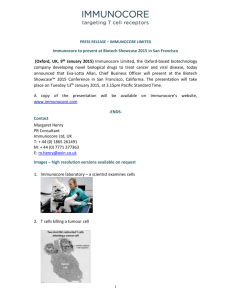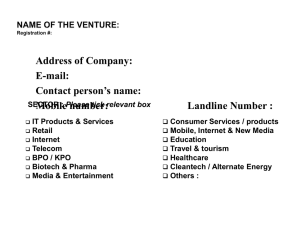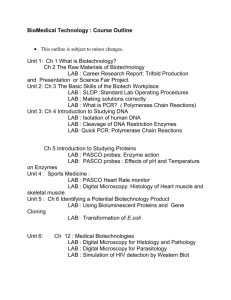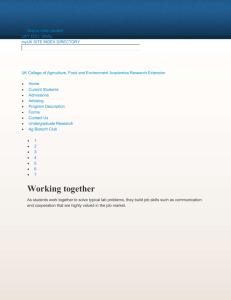Biotech Sector
advertisement
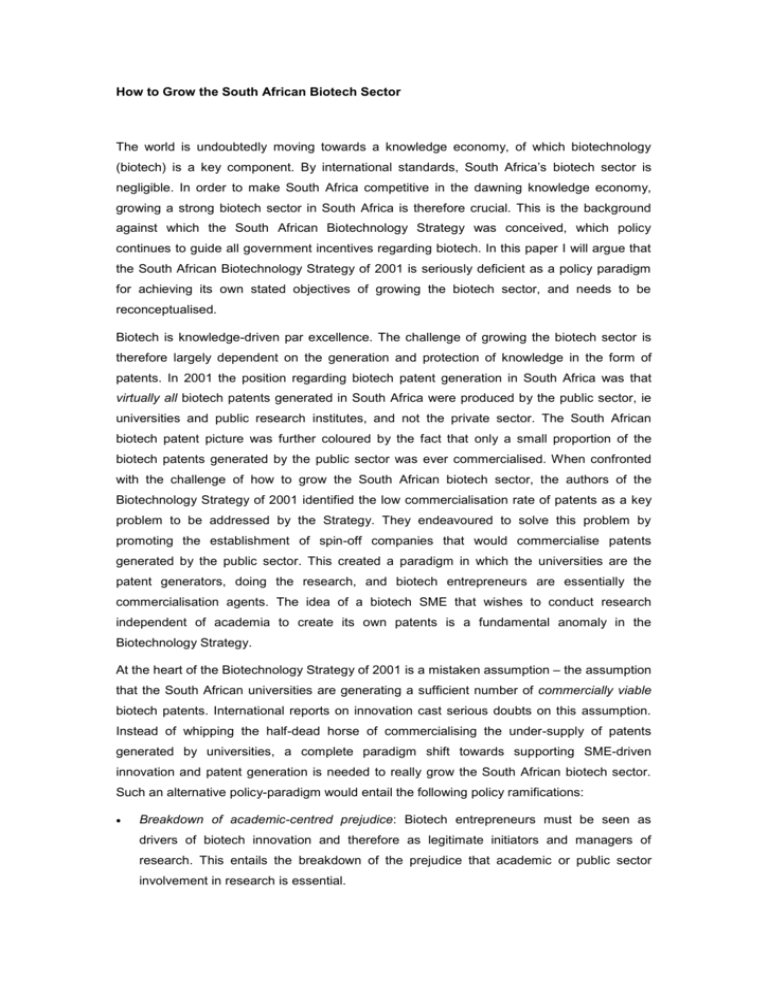
How to Grow the South African Biotech Sector The world is undoubtedly moving towards a knowledge economy, of which biotechnology (biotech) is a key component. By international standards, South Africa’s biotech sector is negligible. In order to make South Africa competitive in the dawning knowledge economy, growing a strong biotech sector in South Africa is therefore crucial. This is the background against which the South African Biotechnology Strategy was conceived, which policy continues to guide all government incentives regarding biotech. In this paper I will argue that the South African Biotechnology Strategy of 2001 is seriously deficient as a policy paradigm for achieving its own stated objectives of growing the biotech sector, and needs to be reconceptualised. Biotech is knowledge-driven par excellence. The challenge of growing the biotech sector is therefore largely dependent on the generation and protection of knowledge in the form of patents. In 2001 the position regarding biotech patent generation in South Africa was that virtually all biotech patents generated in South Africa were produced by the public sector, ie universities and public research institutes, and not the private sector. The South African biotech patent picture was further coloured by the fact that only a small proportion of the biotech patents generated by the public sector was ever commercialised. When confronted with the challenge of how to grow the South African biotech sector, the authors of the Biotechnology Strategy of 2001 identified the low commercialisation rate of patents as a key problem to be addressed by the Strategy. They endeavoured to solve this problem by promoting the establishment of spin-off companies that would commercialise patents generated by the public sector. This created a paradigm in which the universities are the patent generators, doing the research, and biotech entrepreneurs are essentially the commercialisation agents. The idea of a biotech SME that wishes to conduct research independent of academia to create its own patents is a fundamental anomaly in the Biotechnology Strategy. At the heart of the Biotechnology Strategy of 2001 is a mistaken assumption – the assumption that the South African universities are generating a sufficient number of commercially viable biotech patents. International reports on innovation cast serious doubts on this assumption. Instead of whipping the half-dead horse of commercialising the under-supply of patents generated by universities, a complete paradigm shift towards supporting SME-driven innovation and patent generation is needed to really grow the South African biotech sector. Such an alternative policy-paradigm would entail the following policy ramifications: Breakdown of academic-centred prejudice: Biotech entrepreneurs must be seen as drivers of biotech innovation and therefore as legitimate initiators and managers of research. This entails the breakdown of the prejudice that academic or public sector involvement in research is essential. Pre-seed funding: Developing biotech R&D project proposals and driving them through the funding mechanisms is for all practical purposes a full-time job. Biotech entrepreneurs are taking great professional and financial risk to take on such a challenge and need to be supported from the concept (pre-proposal) stage of a planned R&D project. Funding instruments should therefore have a rapid process for screening potentially viable R&D concepts, and should offer pre-seed funding to enable biotech entrepreneurs to develop their concepts into full project proposals and drive them through subsequent evaluation processes. Biotech incubators: A significant barrier to entry peculiar to the biotech sector is the high cost of essential infrastructure – while an IT entrepreneur only needs a computer and Internet access, a biotech entrepreneur needs a laboratory with equipment worth millions. In order to build a biotech private sector, this barrier to entry needs to be addressed through the development of biotech incubators, which are essentially fully equipped laboratory units that are available for rent by biotech SMEs at subsidised rates. Such biotech incubators are also essential to wean biotech SMEs from their current (imposed) dependence on university infrastructure. Why was this alternative policy-paradigm so elusive to the authors of the Biotechnology Strategy of 2001? This was a classical case of in-think: the authors themselves being almost exclusively from the public sector – academics and bureaucrats – they found the solution within their own frame of reference: the public sector. Two of the most essential drivers of innovation and biotech industry development that are internationally used with great success – pre-seed funding and biotech incubation – were therefore completely omitted in the National Biotech Strategy of 2001. The South African biotech sector can only be grown if SMEs are recognised as an essential driver of innovation and patent generation.

